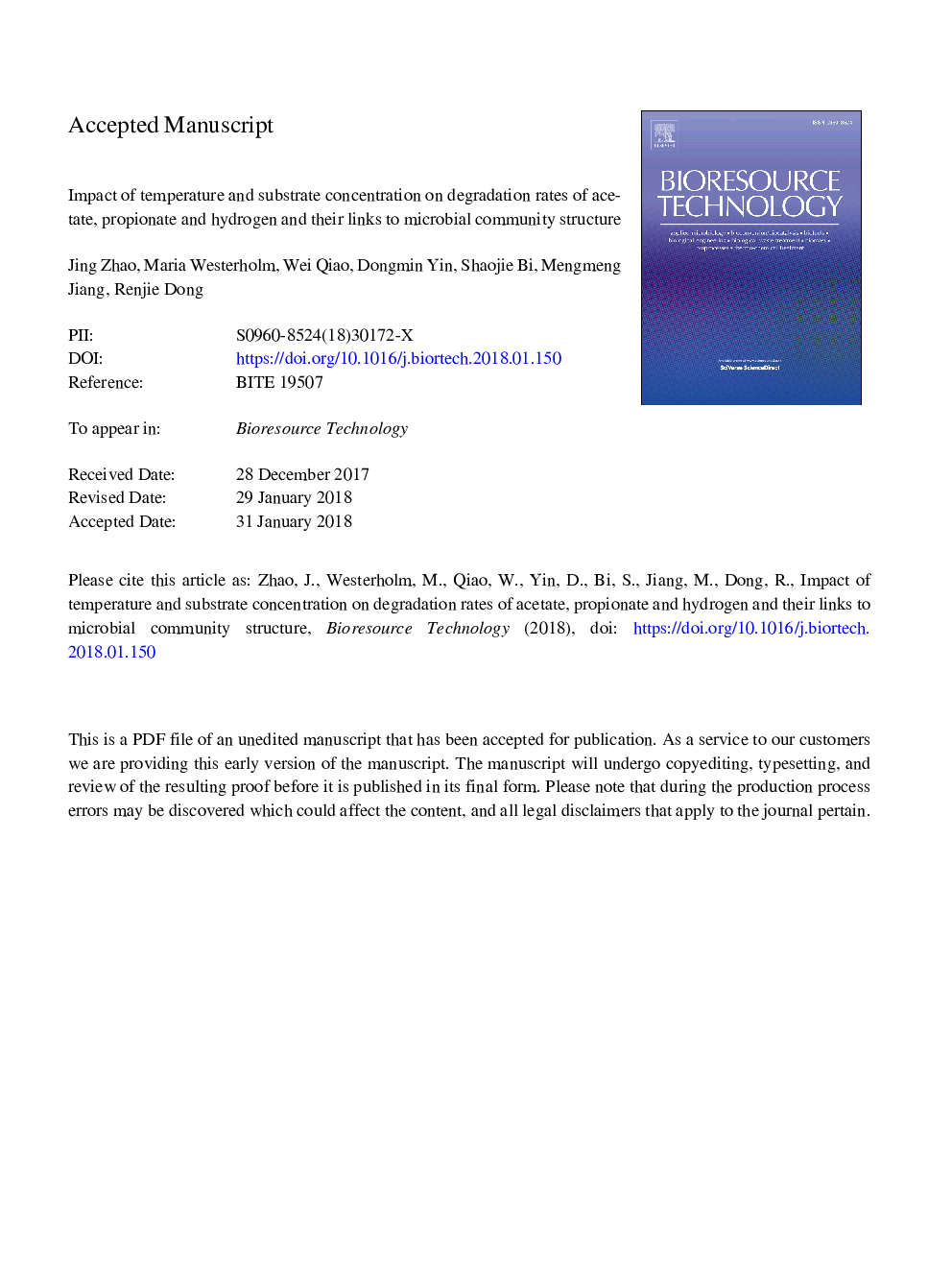| Article ID | Journal | Published Year | Pages | File Type |
|---|---|---|---|---|
| 7067882 | Bioresource Technology | 2018 | 33 Pages |
Abstract
The present study investigates the conversion of acetate, propionate and hydrogen consumption linked to the microbial community structure and related to temperature and substrate concentration. Biogas reactors were continuously fed with coffee powder (20â¯g-COD/L) or acetate (20, 40, and 60â¯g-COD/L) and operated for 193â¯days at 37â¯Â°C or 55â¯Â°C conditions. Starting HRT was 23â¯days which was then reduced to 7â¯days. The kinetics of acetate and propionate degradation and hydrogen consumption rates were measured in batch assays. At HRT 7â¯days, the degradation rate of propionate was higher in thermophilic batches, while acetate degradation rate was higher at mesophilic conditions. The gaseous hydrogen consumption in acetate reactors increased proportionally with temperature and substrate concentration, while the dissolved hydrogen was not affected. The relative high abundance of hydrogentrophic methanogens indicated that the methanogenesis was directed towards the syntrophic acetate oxidation pathway at high acetate concentration and high temperature.
Related Topics
Physical Sciences and Engineering
Chemical Engineering
Process Chemistry and Technology
Authors
Jing Zhao, Maria Westerholm, Wei Qiao, Dongmin Yin, Shaojie Bi, Mengmeng Jiang, Renjie Dong,
